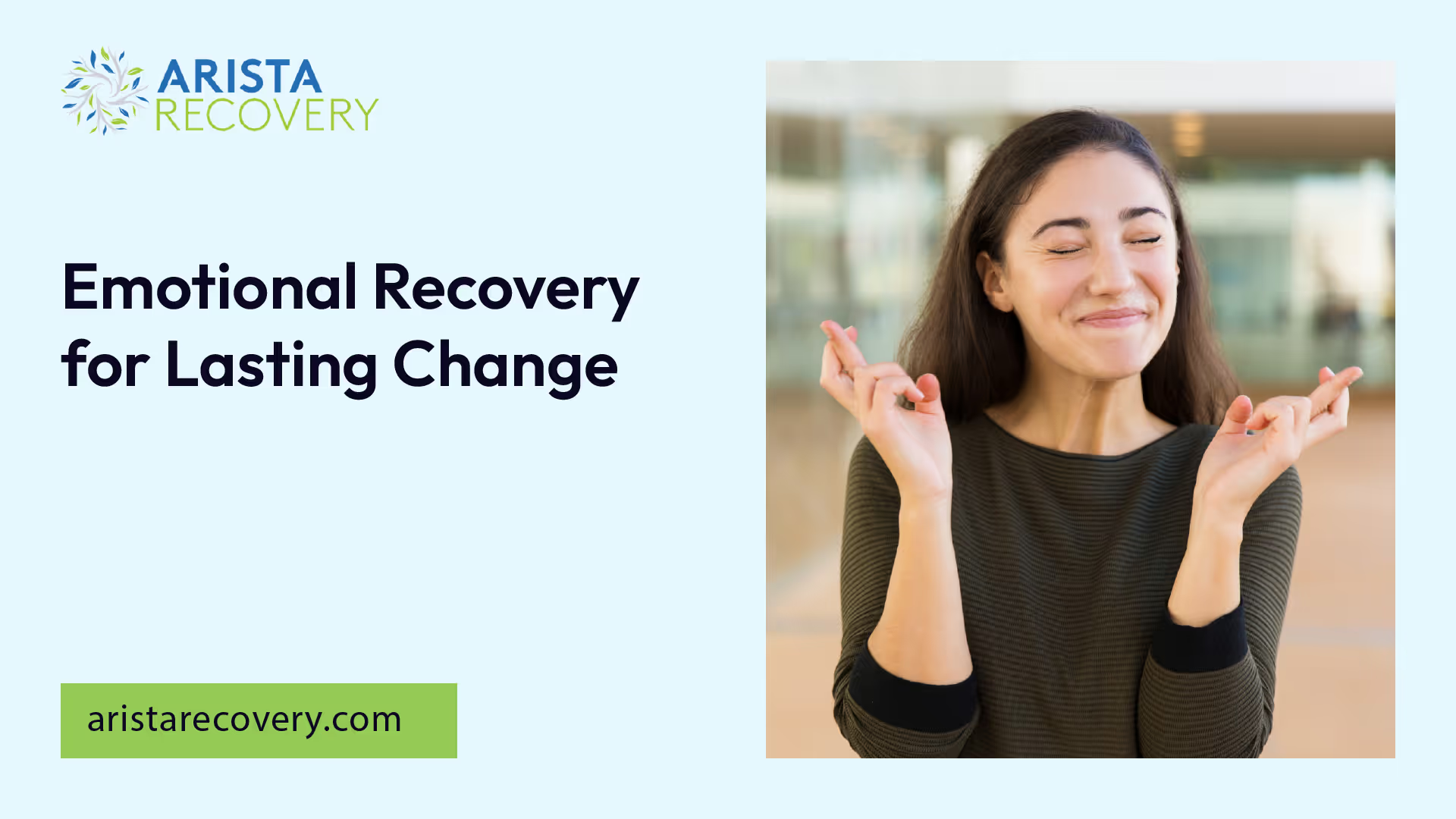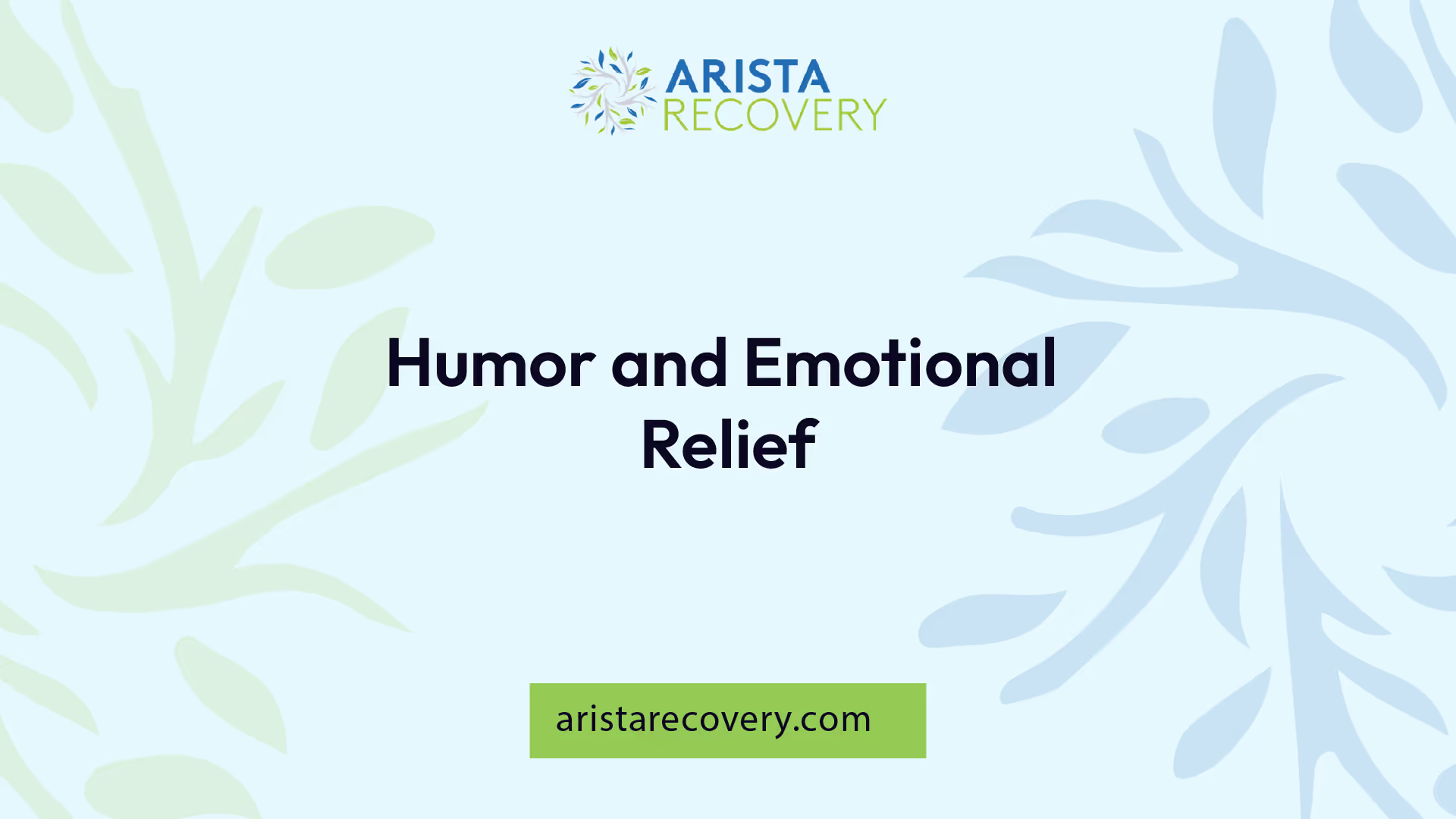Emotional Recovery for Lasting Change

Emotional Recovery Process
The journey to emotional recovery is an integral part of the overall recovery process. It involves working through emotional pain, developing coping mechanisms, and utilizing various strategies for healing. This process is unique to each individual and often requires time and patience.

Understanding Emotional Pain
Emotional pain, similar to physical pain, activates the same regions of the brain. The experience can be just as intense as physical injury. Emotional pain might manifest as intense feelings of hurt, grief, anger, or fear stemming from past experiences. In some cases, deep emotional pain can even manifest as physical ailments.
Acknowledging, allowing, accepting, integrating, and processing painful life experiences and strong emotions are crucial steps in the emotional healing process. It's important to remember that emotional healing takes time and is a unique journey for each person.
Emotional health can significantly impact physical health, including heart health. The link between mental stress and heart health is indirect, but the combination of mental stress with other comorbidities can increase the chances of a cardiac event.
Coping Mechanisms and Strategies
Developing coping mechanisms and strategies is a critical step in managing emotional pain. One effective method is putting feelings into words, often referred to as "labeling". Research has found that expressing what you feel in words activates areas of the brain that can slow down the emotional response.
Mindfulness is another effective strategy. Cultivating mindfulness can maintain a sense of mental well-being and has been shown to help manage physical and emotional pain.
Cognitive-behavioral therapy (CBT) and emotionally focused therapy (EFT) are other powerful options for managing emotional pain. CBT can help individuals work through dysfunctional beliefs and develop healthier ways of thinking.
The journey to emotional recovery may seem daunting, but with the right coping mechanisms, strategies, and support, individuals can successfully navigate through the stages of recovery and experience lasting change.
Techniques for Emotional Healing
Emotional healing is a critical component of the recovery process, especially for individuals dealing with addiction disorders. It involves acknowledging, allowing, accepting, integrating, and processing painful life experiences and strong emotions. This journey towards emotional recovery is unique to each individual and encompasses a variety of techniques, including mindfulness and cognitive behavioral therapy (CBT).

Mindfulness and Emotional Well-being
Mindfulness is an effective method for handling physical and emotional pain. It involves being fully present in the moment, acknowledging one's feelings, thoughts, and sensations without judgment. Research suggests a correlation between cultivating mindfulness in your life and maintaining a sense of mental well-being.
Practicing mindfulness can aid in the recovery process by promoting self-compassion, self-acceptance, and self-regulation. It can also enhance one's ability to cope with uncomfortable emotions and not rush the healing process. Recognizing that progress is not linear is an important aspect of mindfulness, as it can facilitate patience and understanding throughout the emotional recovery journey.
Cognitive Behavioral Therapy (CBT)
Cognitive Behavioral Therapy (CBT) is another effective technique for managing emotional pain. CBT is a form of psychotherapy that helps individuals work through dysfunctional beliefs and develop healthier ways of thinking. It can be particularly beneficial for those experiencing addiction disorders, as it can address negative thought patterns that contribute to addictive behaviors [1].
CBT involves various strategies, including identifying and challenging irrational thoughts, developing problem-solving skills, and practicing relaxation techniques. Through these strategies, individuals can gain a better understanding of their emotions, improve their emotional regulation skills, and foster a healthier relationship with their thoughts and feelings.
In addition to CBT, emotionally focused therapy (EFT) can also be beneficial for emotional healing. EFT is a type of therapy that focuses on emotions and their role in personal experiences and relationships. It can help individuals understand and change their emotional responses, leading to improved emotional well-being and relationship satisfaction.
Both mindfulness and CBT are powerful tools for emotional healing. However, it's important to remember that the emotional recovery journey is unique to each individual. What works for one person may not work for another. Therefore, it's essential to explore different techniques, seek professional guidance, and find what works best for you in your personal journey towards emotional recovery.
Humor and Emotional Relief
Humor can serve as a powerful tool within the process of emotional recovery. It holds a remarkable ability to alleviate emotional pain and provide a positive avenue for coping with challenges associated with addiction disorders.

Impact of Humor on Emotional Pain
Research suggests that humor has a profound influence on how one perceives and manages emotional pain. It can help to shift feelings and thoughts, enabling a more positive and resilient outlook. Humor is found to increase physical pain tolerance through distraction and reduce psychological pain by alleviating anxiety. Moreover, humor and laughter can provide significant relief from emotional pain by promoting a positive mood and reducing stress.
These findings highlight the therapeutic potential of humor in the recovery process, particularly for those grappling with the emotional aspects of addiction disorders.
Using Humor as a Coping Mechanism
Humor can be a powerful coping mechanism for those in the midst of emotional recovery. It helps to reframe negative experiences and provides a sense of control over one's emotions [1].
The use of humor as a coping strategy can be as simple as watching a comedic movie, sharing a funny story, or making light of a stressful situation. The key is to use humor in a way that feels natural and comforting, allowing for a moment of relief in the face of adversity.
However, it's essential to remember that humor is not a cure-all solution. It's one of the many recovery strategies that can be employed in conjunction with other methods such as mindfulness, therapy, peer support, and professional help.
In conclusion, humor plays a significant role in the process of emotional recovery. By reducing stress, alleviating emotional pain, and offering a positive perspective, humor can significantly contribute to the journey towards recovery and wellbeing.
Emotional Recovery After Brain Injury
Emotional recovery after a brain injury is an integral part of the rehabilitation process, playing a significant role in an individual's overall well-being. This healing journey involves various aspects and stages, and it's crucial to understand its challenges and the importance of emotional support.
Challenges of Emotional Recovery
Emotional recovery can prove challenging as individuals may grapple with emotional drain, worry, and uncertainty about the future following a brain injury. Aspirations such as wishing for life to be back to normal, wanting to feel equal to others, and desiring a reason to get up in the morning become significant aspects of the emotional healing process [5].
Family members may also be impacted emotionally, with each person reacting differently to the situation. It's worth noting that emotional recovery is distinct from physical recovery, which focuses on restoring the body's functionality. While physical recovery is often the primary focus in rehabilitation programs, emotional recovery is equally crucial in an individual's overall well-being post-brain injury.
Importance of Emotional Support
Understanding one's feelings and discussing them with trusted individuals can significantly contribute to emotional recovery, helping individuals feel better about their lives and the recovery process after a brain injury [5]. Emotional healing often involves acknowledging and expressing feelings, seeking support, practicing self-care, and sometimes professional therapy to restore emotional well-being.
Furthermore, emotional health can impact physical health, including heart health. Mental illness can cause stress on the heart by affecting the sympathetic drive, which increases heart rate and blood pressure. The link between mental stress and heart health is indirect, but comorbidities combined with mental stress can increase the chances of a cardiac event.
The process of emotional healing requires understanding that only the individual can make a difference in their life. It involves self-reflection, self-compassion, and the willingness to make changes. The process is unique to each individual and takes time, longer or shorter than expected, if fully acknowledged, felt, moved through, and processed [3].
Emotional recovery is an essential part of the recovery process and has a significant role in the stages of recovery. It is closely related to spiritual recovery, and various recovery strategies can contribute to the overall healing journey.
Seeking Professional Help
Taking the first step towards professional help can be a turning point in the journey of emotional recovery.
Importance of Seeking Help
Acknowledging the need for professional assistance is an important aspect of the recovery process. Emotional healing may involve acknowledging and expressing feelings, seeking support, practicing self-care, and sometimes professional therapy to restore emotional well-being. It requires understanding that only the individual can make a difference in their life and involves self-reflection, self-compassion, and the willingness to make changes [2].
Emotional health can impact physical health, including heart health. Mental illness can cause stress on the heart by affecting the sympathetic drive, which increases heart rate and blood pressure. Left untreated, mental illnesses can lead to a higher risk of suicide and impact the economy in billions of dollars lost to productivity.
Therefore, seeking professional help for emotional healing is recommended if symptoms significantly impair daily function, affect work responsibilities, or relationships with family or friends. If there is no improvement in feelings after several months, or if there are thoughts of self-harm, seeking professional help immediately is advised [4].
Signs to Look Out For
Recognizing the signs that you may need professional help is crucial. These may include:
- Continual feelings of sadness, anxiety, or emptiness
- Feeling hopeless or pessimistic
- Irritability
- Feeling guilty, worthless, or helpless
- Loss of interest or pleasure in hobbies and activities
- Feeling tired or "slowed down"
- Difficulty concentrating, remembering, or making decisions
- Difficulty sleeping, early-morning awakening, or oversleeping
- Appetite and/or weight changes
- Thoughts of death or suicide, suicide attempts
- Restlessness or irritability
- Persistent physical symptoms
In the event of these signs, it's crucial to reach out to a mental health professional who can guide you through the process. It's important to remember that seeking help is not a sign of weakness, but a courageous step towards healing and recovery. Remember, help is available, and you are not alone in this journey. For more on recovery strategies, check out our article on recovery strategies.
Role of Peer Professionals
In the journey of emotional recovery, peer professionals have emerged as a crucial component, particularly for individuals dealing with addiction disorders. Sharing knowledge, skills, and personal experiences, they build trust, foster relationships, and instill hope, thus playing a significant role in improving health and wellness [7].
Peer Support in Recovery
The process of recovery is often complex and can seem daunting when faced alone. It's here that peer professionals come into play. These are individuals who have 'lived experience' with mental illness, providing them with a unique depth of understanding and insight into a recovering individual's experience.
New York was the first state to establish a Civil Service title for "Peer Specialists", recognizing the vital role they play in the mental health system. These peers were among the first to be certified and qualify for state and Medicaid reimbursement.
Peer professionals, including Adult Peer Specialists, Family Peer Advocates, and Youth Peer Advocates, are recognized and endorsed by the New York State Office of Mental Health. Their lived experiences, coupled with their professional training, make them invaluable aids in the recovery process of individuals with addiction disorders.
Benefits of Peer Specialist Services
Peer Specialist services have been shown to improve outcomes for individuals dealing with Substance Use Disorder, health, or mental health challenges. Published studies cited by organizations such as Substance Abuse & Mental Health Services Administration (SAMHSA) and Centers for Disease Control (CDC) indicate a range of benefits.
Peer Specialists promote positive health and recovery outcomes, including reduced inpatient service use, enhanced relationships with providers, better engagement with care, higher levels of empowerment, and hope for recovery. They also improve the individual's ability to manage ongoing health and wellness.
The benefits of engaging with Peer Specialist services can also extend to spiritual recovery, as the shared experience and understanding can lead to profound personal growth and a deeper connection with self and others.
Incorporating peer support as part of the recovery strategies can significantly enhance the stages of recovery, providing a more holistic approach to healing and emotional recovery.
Thus, peer professionals play a vital role in the journey of emotional recovery, providing support, understanding, and hope for a brighter, healthier future.
References
[1]: https://psychcentral.com/blog/how-to-deal-with-emotional-pain
[2]: https://www.betterhelp.com/advice/general/how-does-emotional-healing-differ-from-physical-healing/
[3]: https://www.verywellmind.com/how-to-find-emotional-healing-5214462
[4]: https://www.hackensackmeridianhealth.org/en/healthu/2023/08/29/emotional-healing-after-an-injury-or-illness
[5]: https://www.brainline.org/article/emotional-and-physical-recovery-are-two-different-things
[6]: https://futuresrecoveryhealthcare.com/blog/barriers-to-mental-health-treatment/
[7]: https://behavioralhealthnews.org/peer-professionals-and-the-important-role-they-play-in-the-recovery-process/
When mental health challenges and addiction intersect, it can feel isolating. At Arista, we offer compassionate, evidence-based, and trauma-informed care to help you heal, grow, and move forward.
You’re not alone in this.
When mental health challenges and addiction intersect, it can feel isolating. At Arista, we offer compassionate, evidence-based, and trauma-informed care to help you heal, grow, and move forward.
Support that moves with you.
You’ve taken a brave first step. At Arista Recovery, we’re here to help you continue with best-in-class care designed for long-term healing and support.
.webp)






